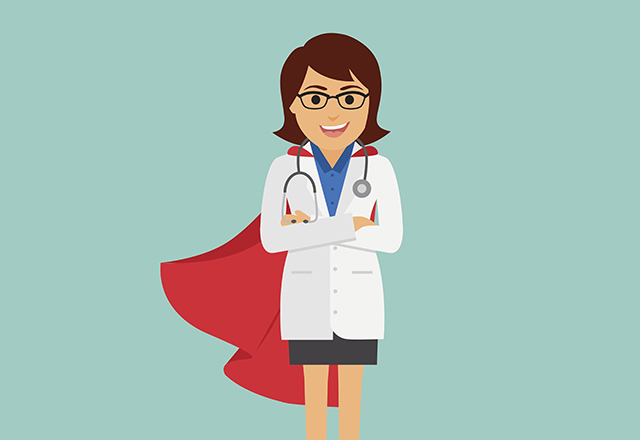“Whatever happens tomorrow you must promise me one thing. That you will stay who you are. Not a perfect soldier, but a good man.”
This is one of my favorite quotes from Captain America because it reminds me that at the end of the day, no matter how superhuman people think we are — whether we have powers to fly or heal — we must strive to put our humanity first.
I recently rotated on a service with one of my research mentors who I’ve greatly admired throughout my training at Johns Hopkins. Not only is he very accomplished in his field, but perhaps most admirably, regardless of the situation, he always tries to be a good man first. Sometimes that means remembering to be extra compassionate to a difficult patient in clinic. Other times it means convincing a room full of very tired and reluctant people, at the end of a long surgery, to change the bedsheets one more time on the patient transport bed because they’ve gotten dirty.
This reminds me of a physician who gave one of our lectures way back in second year. He would constantly repeat, “Integrity means doing the right thing, even if it’s the harder thing.” I’ve always admired his attitude, and I consistently heard that his peers and trainees also share that opinion of him. I think that’s largely because we’ve always wanted to be the better person, even though we might not always succeed in doing so. I, too, hope to be one day respected for choosing to do the right thing, especially when it is the harder thing.
This idea of being a human first has been a recent, and frequent, topic of conversations that I’ve had with both my peers and seniors in the surgical field. It is so easy to burn out in the medical student training process, especially given the long hours and high-pressure environment that are characteristic of so many surgical departments at so many hospitals. Surgical specialties often have a reputation for not necessarily rewarding compassion and empathy — if you get the job done, very few people really care how you did it or how many people you might have been rude to in the process. That,makes me very sad, because one of my personal goals is to never forget to be a little bit kinder, especially on the really bad days. I’ve so far been very fortunate to have mentors who have always led through example and demonstrated what being the best kind of doctor for every patient means. I think my best service to them, and the best kind of gift I can give them, is to do the same for my future patients and the people I will hopefully be a role model to someday. That’s the kind of doctor I’d like to become.
